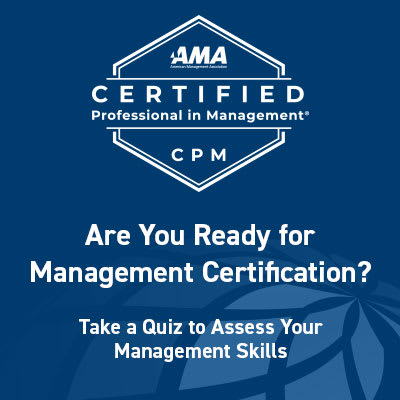3 Steps to Exceptional Critical Thinking
-
Multiple (5)
-
From 279 USD
-
Online
-
Virtual Classroom
Analytical Thinking Problem Solving and Decision Making
-
Multiple (6)
-
From 2,595 USD
-
Multiple (4)
-
Virtual Classroom, Classroom
Critical Thinking
-
Multiple (16)
-
From 2,795 USD
-
Multiple (6)
-
Classroom, Virtual Classroom
Critical Thinking With Emotional Intelligence
-
From 149 USD
-
Online
-
Self-paced Online
Strategic Thinking: Leadership Tools for Planning, Problem-Solving, and Decision-Making
-
From 775 USD
-
Multiple (3)
-
Classroom, On-site
Critical Thinking With Emotional Intelligence (Corporate)
-
From 149 USD
-
Online
-
Self-paced Online
From Roadblocks to Breakthroughs Discover the Secrets of Creative Problem-Solving and Critical Thinking
-
Online
-
Webinar
Critical Thinking for Leaders
-
Online
-
Self-paced Online
Workplace Development: Problem Solving and Data Analysis
-
From 249 USD
-
Online
-
Self-paced Online
Critical Thinking
-
Online
-
Webinar
Problem Solving
-
Online
-
Self-paced Online
Critical Thinking Tools
-
United States of America
-
On-site
Crash Course in Solving Employee Performance Problems
-
From 199 USD
-
Online
-
Webinar, Virtual Classroom
Creative Thinking and Innovation
-
From 999 CAD
-
Online
-
Virtual Classroom
Problem Solving in Service
-
Intermediate level
-
Online
-
Self-paced Online
Problem Solving and Decision Making
-
From 1,095 USD
-
Ottawa
-
Classroom
Strategic Thinking - Free Seminar Preview
-
Online
-
Webinar, Virtual Classroom
Problem Solving and Decision Making
-
United States of America
-
On-site
Why is Critical Thinking Important?
Critical thinking refers to the way individuals make well thought-out judgments about specific problems from gathered information. Critical thinking involves questioning the arguments and conclusions drawn before accepting something. This process is important in order to verify the authenticity and relevance of problems faced by individuals and organizations and is a key aspect when achieving organizational or personal goals.
The success of an organization depends heavily on its employees and on the way they think, make decisions, and use sound judgments to attempt and solve problems. The ability of critical thinkers to look for evidence to support a particular argument or conclusion therefore makes them more valued by organizations because they help make better and more informed decisions that can have a major impact on an organization's overall performance. This can significantly affect an organization and its overall productivity.
It is essential for individuals to be able to think in a way that helps to make better decisions for organizations. There are a number of training institutions and academies today that are providing critical thinking courses that lay a foundation and help individuals to develop these skills.
Training Content
Critical thinking involves understanding a problem, finding and evaluating evidence and making logical and informed decisions. Critical thinking courses and training programs aim to equip individuals with essential skills so that they can find smart solutions to tricky problems, avoid emotional thinking while making decisions and work together with others in a more efficient manner that benefit the organization they are working for.
These critical thinking courses also help their participants to develop critical thinking skills by providing tips, techniques and various thought exercises. By attending such training programs participants learn techniques and tools to generate breakthrough ideas and solve the most pressing problems effectively. Participants learn key skills such as ways of asking the right questions, how to challenge assumptions and conclusions, and also thinking and assessing situations from others point of view with clarity.
The critical thinking courses discuss fundamental concepts and theories essential to critical thinking in order to provide its participants with key insights and in-depth knowledge that can be applied into real life work situations.
The topics covered in such programs usually include:
- defining critical thinking
- adopting and identifying key characteristics of critical thinking
- identifying assumptions
- evaluating information accurately to ensure its authenticity
- differentiating between fact and opinion
- recognizing and avoiding critical thinking mistakes
- applying critical thinking process in real life business situations
Who Should Attend a Critical Thinking Training Course?
Critical thinking is an essential skill required by individuals in every aspect of their lives. Anyone who wants some personal development can attend one of these courses. Business professionals aiming for achieving better results in business will particularly benefit from these training programs.
Training Formats
Classroom Learning
If you enjoy learning with others, going back to the classroom is the perfect option for you! Prices and lengths of courses vary so check carefully before applying!
On-Site Training
Why not get a group of your employees together and train everyone together on-site? Contact the relevant training provider for a quote to have a professional facilitator come along to your company.
On-Line Courses
There are several online critical thinking courses available for professionals who are seeking more flexibility in terms of cost and time. These online critical thinking courses are usually taught in forms of virtual tutorials, video tutorials, discussion forums and PowerPoint slides. After successful completion of such programs, participants are awarded with a certificate.




















